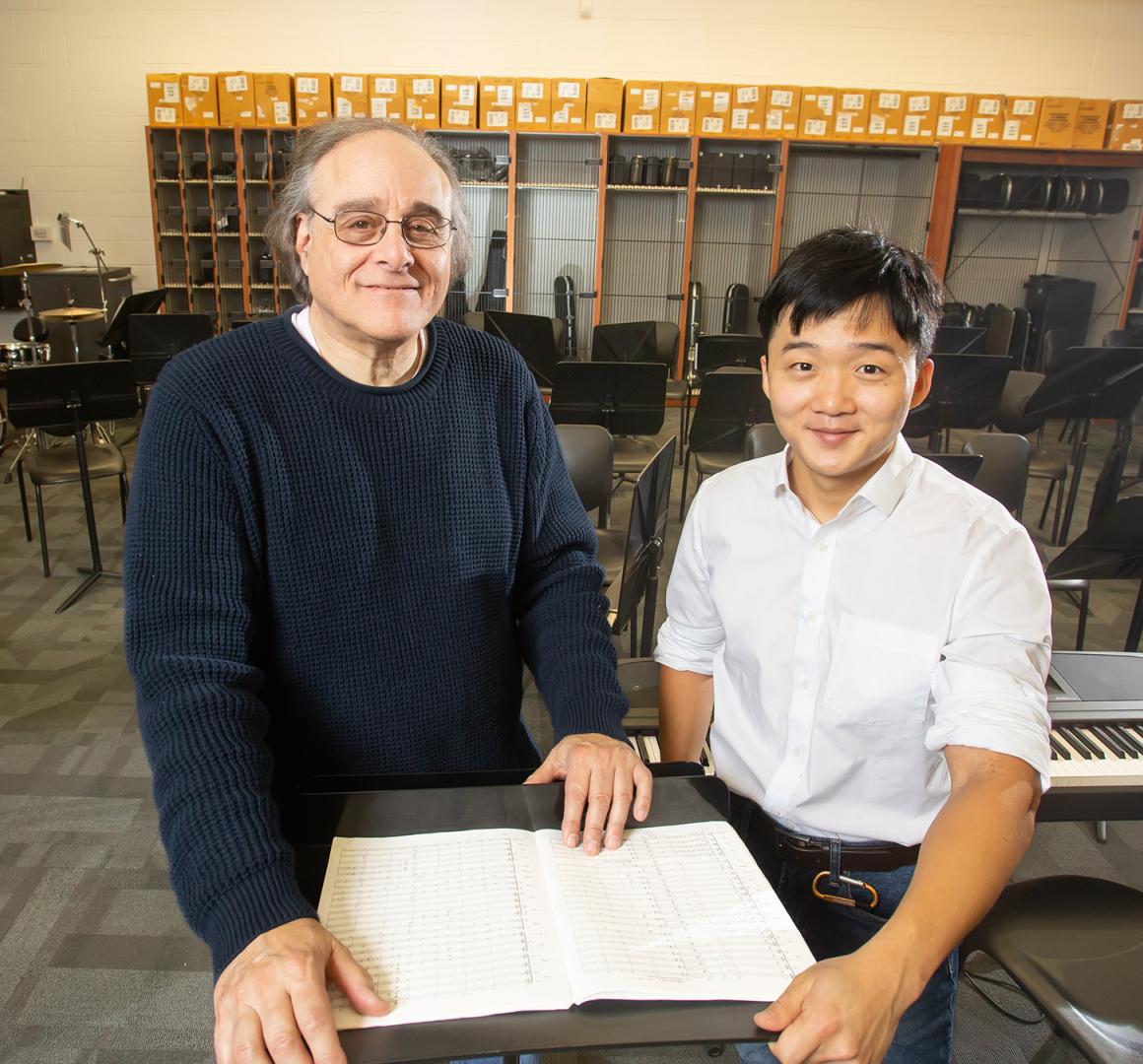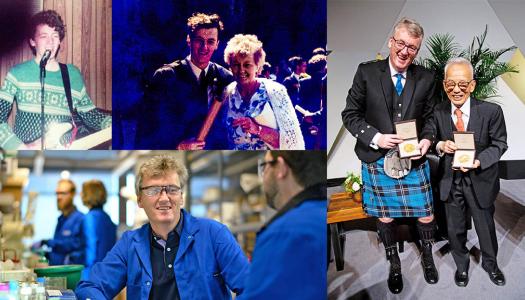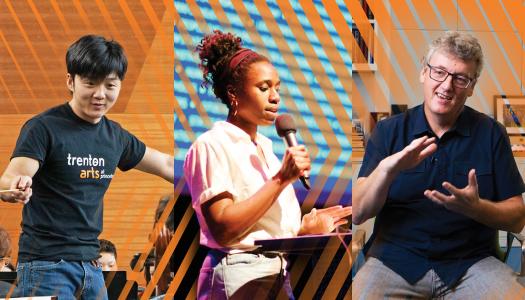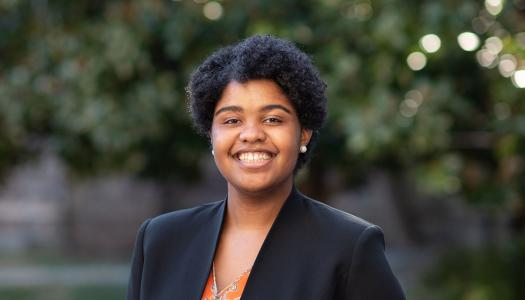Trenton plays, Lou Chen ’19 stays
An innovative partnership builds access and a vibrant artistic community
The idea was like a musical earworm that Lou Chen ’19 could not shake throughout his first year at Princeton: organize a youth orchestra in Trenton, New Jersey. The first notes of the idea started when he was growing up in San Bernardino, California. He was a pianist and violinist who received private lessons, a luxury he soon realized was rare among his peers in their diverse, blue-collar community still reeling from the shuttering of a nearby military base. His elementary school music teacher started a tuition-free youth orchestra that rehearsed every Saturday, and Chen witnessed its impact. “I was surrounded by friends who were incredibly talented at their instruments, but their only barrier was a lack of financial resources,” Chen said.
The crescendo began to build after Chen participated in Community Action and he observed the socioeconomic disparity between Princeton and other towns in Mercer County, towns that reminded him of San Bernardino. It was that inescapable tune that brought him to a chilly, overcrowded room in Trenton’s Our Lady of the Angels Church on Oct. 13, 2016. He was a Princeton sophomore, accompanied by three classmates — Mary Kim ’19, Elijah Ash ’19 and Kristin Hauge ’18 — and they had risen early that morning to attend this 7:30 a.m. rehearsal of the Trenton Central High School (TCHS) Orchestra and pitch his idea to the imposing figure at the head of the orchestra, Joseph Pucciatti, who had created and led the high school orchestra for more than 25 years.
Chen’s first impression was just how accomplished and in sync the orchestra was. The TCHS students were excellent, as individual musicians and as a unit. So he was especially nervous when he approached Pucciatti after rehearsal and shared his proposal for creating a new youth orchestra. Pucciatti listened and then gave a frank answer.
“I told him no — because we already have an orchestra here at the high school and these students are already being pulled in too many different directions,” said Pucciatti, who was born and raised in Trenton and has taught music in Trenton public schools since the 1970s. “‘We don’t need another orchestra,’ I told Lou. ‘These kids need more individual instruction. If you really want to make a difference, they need to have more lessons.’ And that’s the direction that Lou took.”
“Mr. Pucciatti told me to slow down,” Chen said. “He said, ‘Come to rehearsal once per week and get to know the kids. Show up at rehearsals and concerts and help them with their music. And then propose the idea of an orchestra to them and see what they think.’ Best advice I ever got.”
Chen and his Princeton colleagues began by giving violin lessons to six TCHS students, and very quickly, they demonstrated to Pucciatti and the Trenton community that their commitment was sincere. That earworm of an idea that wouldn’t leave Chen alone — forming a Trenton youth orchestra — eventually blossomed into a full symphony of creative outreach and activities. Trenton Arts at Princeton (TAP), which Chen helped establish in 2019 and now runs, includes not only the Trenton Youth Orchestra (TYO) that he originally envisioned, but it also incorporates Trenton Youth Singers, Trenton Youth Dancers and Trenton Youth Theater that make up the Saturday Morning Arts (SMArts) program on campus. Partnering with Princeton’s Department of Music, the Lewis Center for the Arts, the Pace Center for Civic Engagement and the Trenton school system, TAP also offers campus collaborations that connect Trenton students to world-class artists and Trenton Arts fellowships for Princeton students to lead the SMArts groups.
The SMArts program brings Trenton students in the four artistic disciplines to Princeton for rehearsals, workshops, guest performances from Princeton student groups, and one-on-one and group instruction from Princeton student volunteers.
“We’re building a community of artists across Trenton and Princeton University that supplements what’s already being done in Trenton, not supplants it,” Chen said. “TAP grew so fast because we had seeded the ground with these relationships of mutual trust and respect.”
“When Lou knocked on our door, that was the first time that Princeton University got involved in the musical arts in the Trenton public schools,” Pucciatti said. “At first I was a bit skeptical, but he was always very dedicated and honest, and because of Lou’s very true intentions, this program went in the direction it was supposed to go.”
RISE AND SHINE
Early on Saturday mornings, about 60 Trenton middle and high school students board two buses that bring them to Princeton’s Lewis Arts complex for the weekly SMArts program. Chen, who lives in Lawrenceville, stops at the Gingered Peach bakery on his way to campus, picking up the generously donated treats that will start the students’ morning on the right note.
He spends weeks preparing for each Saturday session, shuttling between Trenton and Princeton, planning the morning’s program and arranging the spreadsheets for one-on-one private lessons that pair each Trenton student musician with a Princeton student mentor. Some nights, he and Pucciatti will jump on a call as late as 11 p.m. to discuss an upcoming concert, a new student, or the pieces of music the students need to master at their next Saturday session.
After the students polish off the pastries, the program begins with a guest performance and Q&A from artists such as the Nassoons a cappella group, the Princeton Pianists Ensemble or students from the Lewis Center’s programs in theater and music theater. The groups then break out into separate spaces, with dancers and actors participating in workshops and musicians and singers pairing off for their private lessons. Each group is run by a staff director, a Princeton student leader, one or more Princeton faculty fellows, and one or more Trenton teacher-partners — plus the Princeton student volunteers who serve as coaches and private instructors. Chen’s role is basically to be everywhere. “I often joke that I have to master the art of the five-second conversation, because I have so many students, and I can’t talk to all of them in one rehearsal.”
But as he jumps from one room to the other, building with each student upon last week’s five-second conversation with a fresh one, he marvels at all the connections that are being made. “I love spying on sectionals or private lessons and seeing a group dynamic begin to emerge as people place more trust in each other,” Chen said. “Or seeing an older Trenton student mentoring a younger Trenton student they’ve never met before, or watching a Princeton student crack jokes with their Trenton student. And a longer arc I love seeing is how much students I’ve known for a while have changed because of their engagement with the arts.”
“If you love music and you love playing with your friends, a sixth day of doing that is really incredible,” he added. “I think it’s as simple as that: SMArts is an extra couple of hours of doing what you love.”
The experience of former TCHS student Collin Thompson is proof positive. He started playing the violin in elementary school, but his choice was limited by the instruments available to him. Later, he picked up the saxophone and the flute, instruments he played in the TCHS orchestra. But he never completely put down the violin, and when some of his friends talked about their Saturday sessions at Princeton, his ears perked up.
“I noticed a lot of my friends who play violin were going to Princeton to play music on Saturdays, and I was like, ‘How can I become a part of that?’” said Thompson, who is now a sophomore at Montclair State. “I talked to Lou, I auditioned, and they set me up with a private tutor on Saturdays.”
Thompson so enjoyed the experience that he still participates in the SMArts program, taking the train home to Trenton from Montclair on Friday nights so he can be at the Lewis Arts complex on Saturday morning. He still takes lessons on the violin with his teacher of four years, Warren Yuan ’22, and Chen recently named Thompson concertmaster of the Trenton Youth Orchestra.
“Lou is so effective because he really listens to us and he knows how to make it something we want to do,” Thompson said. “The work that he does with the Trenton students really shows in their high school orchestra practice with Mr. Pucciatti. Even after I left for college, I wanted to stay involved.”
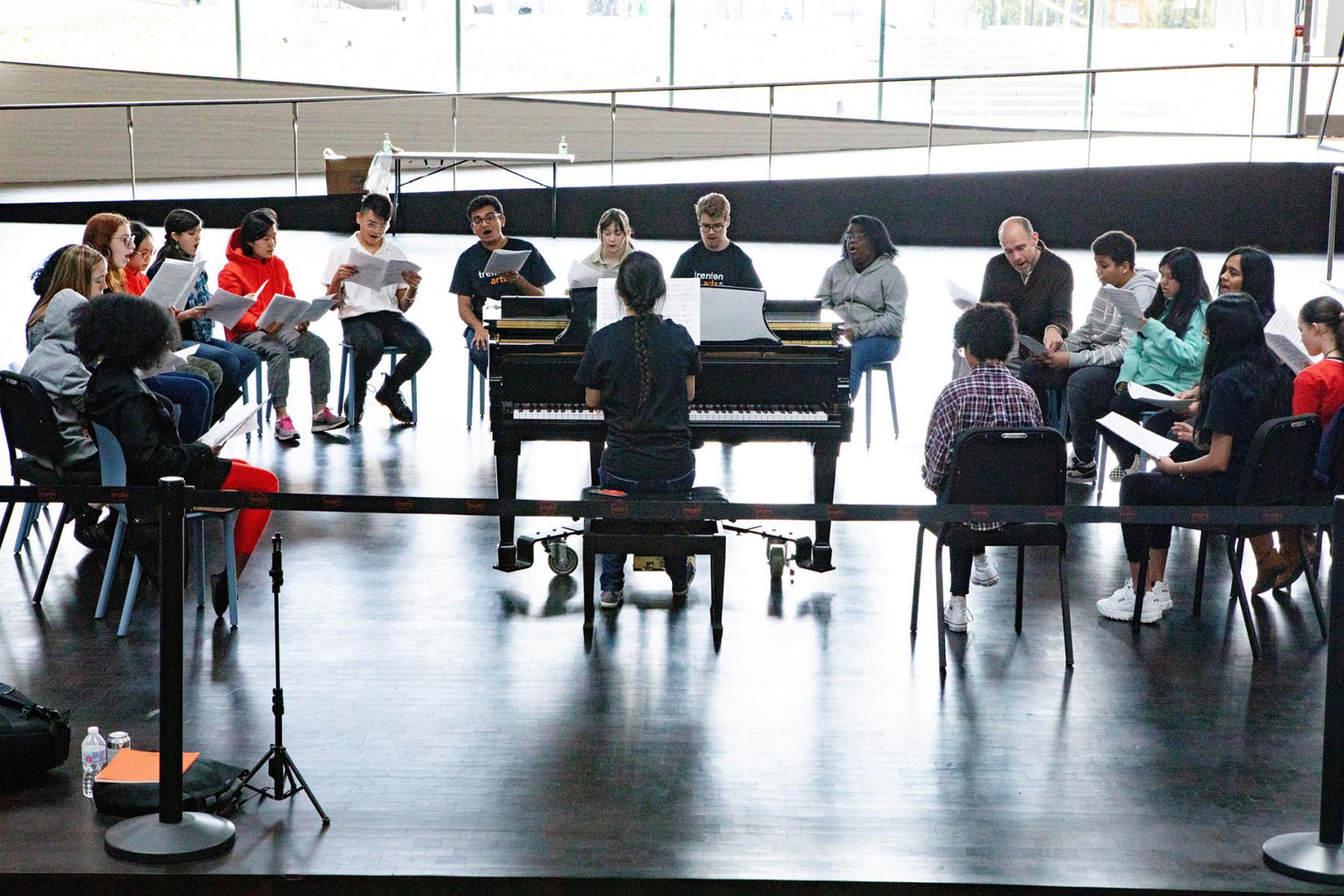
TUNE EV’RY VOICE
In the spring of 2019, Chen was nearing graduation, poised to receive his Princeton degree in music with certificates in conducting performance and American studies. Though he would graduate with honors, his intense dedication to the Trenton orchestra students eclipsed all of his studies — “I’m sure my professors knew” — and he had helped transform the TYO into something truly remarkable.
TYO’s profile rose even higher during the 2018-19 Princeton University Concerts residency of Gustavo Dudamel, the renowned Venezuelan maestro from the Los Angeles Philharmonic and a powerful advocate in the campaign to bring music education to underserved communities. While on campus, he met with the Trenton students and encouraged Chen to keep up the good work. His positive reinforcement was backed by financial support from the Gustavo Dudamel Foundation, which allowed the program to grow faster.
“I started the youth orchestra and taught because I found it fulfilling,” said Chen, whose parents are educators. “It wasn’t super altruistic — it was what I needed to get through Princeton and to feel like I had a sense of a community and a sense of purpose. It was the highlight of my college experience.”
The future of the orchestra weighed heavily on Chen as he contemplated his post-graduate plans, and he began to pursue job opportunities in New York and Philadelphia that would allow him to continue directing the TYO. Close to graduation, he received a job offer from the Knight First Amendment Institute at Columbia University, which specializes in defending freedoms of speech and the press in the digital landscape. Juggling the new job in New York and commuting to Princeton on Saturdays to continue directing TYO seemed complicated, but possible.
Around the same time, Chen received another job offer. The University invited him to build upon the success of TYO and the relationships he had cultivated with the Trenton school system to launch a multidisciplinary co-curricular arts and engagement program. “It was a major bet on me and our program, entrusting a [soon-to-be] grad with building this initiative from scratch,” Chen said.
“It was also a fork in the road, because my second passion is politics, and it forced me to take a step back and ask myself: which of these is my job, and which is my hobby?” he added. “And this wasn’t just a choice between politics and the arts; it was a choice between a job at a great organization where I’d be doing good work, and a chance to build on something I’d spent four years building and see it through. It was actually a difficult decision.”
Pucciatti, who says he thinks about retirement from time to time, understood the forces pressing on Chen. “Being in an orchestra is very special, almost like being in a family,” he said. “When you play in a group, you’re as important as the person sitting next to you. Every member is contributing to this wonderful sound, and it can be magical when you play it right. But you have to show up. Our students are learning what it means to be committed, what it means to be a part of something bigger than yourself.”
That catchy earworm that drove Chen at the beginning had grown into a community chorus, and the thought of it being silenced persuaded him to accept Princeton’s offer to become program manager of a dynamic new arts collaboration.
“I use the word community over and over again, because it’s proof that walls are being broken down, allowing these two very different groups of students to feel comfortable playing together, talking together, hanging out together,” Chen said. “And out of that artistic community comes meaningful relationships, and there’s something that comes out of that shared experience that is very, very special.”
Chen never forgot Pucciatti’s initial advice. He shows up. Again and again. At rehearsals and concerts, even those he has not organized. (Especially those.) At open mic nights and dance showcases. When he visits TCHS now, he is greeted by smiles and gets waved in by security. They know his face and his purpose.
“I tend to plant roots wherever I am,” Chen said. “At Princeton, I found myself embedded in a community and got really attached. I haven’t regretted it since.”
